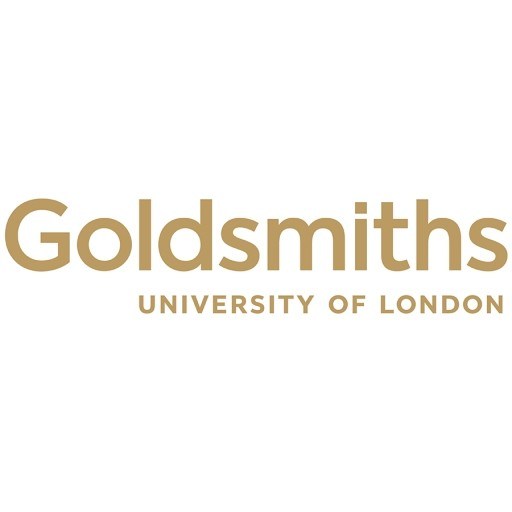Photos of university / #Princeton
Comparative Literature at Princeton University offers students an interdisciplinary and global approach to the study of literary texts, cultures, and languages. This program encourages exploration across national, linguistic, and cultural boundaries, allowing students to analyze literature in its diverse contexts and to develop a nuanced understanding of cross-cultural connections and influences. Students engage with a wide array of literary works from different regions and periods, examining themes such as identity, migration, translation, representation, and power. The curriculum emphasizes critical reading, scholarly analysis, and comparative methodologies, fostering skills that are applicable in many fields including writing, research, education, and international relations. Students have the opportunity to study multiple languages, gaining proficiency that enhances their interpretative abilities and broadens their academic perspectives. The program also encourages engagement with related disciplines such as philosophy, history, film studies, and cultural studies, enabling a multidimensional approach to literary analysis. Under the guidance of renowned faculty members, students can participate in seminars, workshops, and research projects that promote active learning and original inquiry. The comparative aspect of the program prepares graduates to analyze complex cultural phenomena and to communicate effectively across different linguistic and cultural frameworks. Alumni of the program have pursued careers in academia, publishing, journalism, international organizations, and arts administration. The department emphasizes a global outlook, critical thinking, and innovative research, making Comparative Literature at Princeton a rigorous and enriching academic experience designed to equip students with the intellectual tools necessary for understanding our interconnected world.
Courses:
The curriculum in comparative literature has two major objectives: while training students in one literary tradition, it also requires them to be seriously interested in at least two other literatures as well as in the historical, critical and theoretical problems raised by the study of literature. The course of study over the four to six terms prior to the general examination reflects these objectives, and includes course work in comparative literature and in the student’s major and minor literatures.
Areas of Study
Major Literature. The program of study in the major literature aims at giving students a mastery sufficient to enable them to teach it in a national or a comparative context. The historical scope of work in the major literature is flexibly defined, but it may conform to the following patterns:
- Classical Literatures. The major in classics includes the study of both Greek and Roman literatures. For a detailed description of the curriculum, see the separate Schedule for the Classics Major in Comparative Literature.
- Post-Classical Western Literatures. Students majoring in these literatures choose one from among the following periods: (1) Middle Ages to Renaissance, (2) Renaissance to Romanticism, and (3) Romanticism to the present.
- East Asian Literatures. Students majoring in Chinese or Japanese may follow the prescribed curriculum for comparative literature students concentrating in one or both of these literatures. For the detailed curriculum, see the separate Schedule for Chinese or Japanese Majors in Comparative Literature.
- Near Eastern Literatures. Students majoring in Arabic, Hebrew, Persian, or Turkish develop individual programs with the assistance of their advisers. These programs generally involve a version of one or more topics of concentration or fields of study required by the Department of Near Eastern Studies.
Additional Literatures. Students are expected to enrich their knowledge of their special fields through work in different languages and literatures. Some of this work is done in comparative literature courses, but at least one minor literature also must be studied in the pertinent department.
Comparative Literature. The program of study in comparative literature combines the students’ work in their major and minor literatures by focusing on a specific area in which these literatures can be fully explored. This area may be a limited segment of literary history (the late Middle Ages, the 16th century, Romanticism) or a particular aspect common to all three literatures (a genre such as lyric or the novel, or a phenomenon such as neoclassicism or the modern). It also may be a critical or a theoretical problem, involving analyses of modes of interpretation; comparisons of genres and themes; questions about the relationship between different art forms (such as painting and poetry); or problems in literary aesthetics or epistemology. In this way, comparative literature functions as the core of the curriculum, exposing students to a range of literary techniques and helping them to organize their work in their chosen literatures.
Language(s):
In addition to English, students must have a command of one classical and two modern languages. These may be Western, East Asian, or Near Eastern.
Students must elect one of these languages as their principal foreign language. A firm reading knowledge of the other two languages must be demonstrated either through departmentally administered proficiency examinations or courses.
General Exam:
The general examination tests, as it reflects, the candidate’s course of study. Based on a reading list devised by the student and the student’s advisers, the written examination is divided into two parts. The first concerns the candidate’s major literature, and is comprehensive in nature. It is normally taken at the end of the fourth or fifth term. The second, in comparative literature, is usually taken at the end of the fifth or sixth term. It is intensive in nature and consists of questions based on those areas of study that the candidate has prepared in consultation with his or her faculty advisers, often in anticipation of the candidate’s eventual dissertation topic.
Qualifying for the M.A.:
The Master of Arts (M.A.) degree is normally an incidental degree on the way to full Ph.D. candidacy and is earned after a student successfully completes the required number of courses plus both parts of the written examination. It may also be awarded to students who, for various reasons, leave the Ph.D. program, provided that these requirements have been met.
Teaching:
Practice teaching forms a significant part of graduate education in comparative literature. It is not only a crucial element in a graduate student’s preparation for teaching and research, but it is also an essential credential for future employment, especially if a student wishes to qualify for a position in his or her major literature. As a matter of departmental policy, therefore, all students, after their first year, are normally required to accumulate at least four classroom hours of teaching experience during their time at Princeton. (“Classroom hours” refers to the number of hours per week, over the course of a semester, during which the student is in charge of the classroom as the primary instructor present.)
Dissertation and FPO:
Upon successful completion of both parts of the general examination, students consult with a committee of advisers to write an exposition of the dissertation project. This dissertation prospectus is then defended orally by the student, typically in the next examination period after successful completion of the second part of the general examination, but in any case before the end of the seventh semester of study.
The dissertation should demonstrate the candidate’s competence in writing a substantial work of scholarship and criticism, and his or her proficiency in maturely handling the foreign languages chosen. Under certain circumstances, candidates may be permitted to submit an original translation of a work of particular difficulty. A dissertation based on translation, however, must be preceded by a comprehensive introduction that examines in depth the comparative context of the translated work as well as the linguistic and theoretical problems arising from the translation itself.
A final public oral examination is required after the dissertation has been read and approved by representatives of the faculty. This examination consists of two parts. The first is a 30-minute lecture in which the candidate justifies the subject treated and the methods employed, accounts for any new contributions made to literary history and criticism, and projects plans for future scholarship and publication based upon the dissertation. The second is a series of questions growing out of subjects presented in the lecture and relating to both the criticism and the teaching of literary material dealt with in the dissertation.
- Application Fee: $90
- Statement of Academic Purpose
- Resume/Curriculum Vitae
- Recommendation Letters
- Transcripts
- Fall Semester Grades
- Prerequisite Tests
- English Language Tests
- GRE : General test
Additional Departmental Requirements:
- Sample of written work in English, 25 pages maximum
For Ph.D. candidates, tuition and fees during a student’s regular period of enrollment are provided in full from a student’s graduate student financial support, in the form of tuition support from fellowships, assistantships, or external sources.
The annual stipend amount provided to Ph.D. candidates during their regular enrollment is intended to support a single graduate student based on estimated costs. Master’s students or students with spouses and/or dependents may require additional resources to support their living expenses
Comparative Literature at Princeton University is an interdisciplinary program that explores literature across different cultures, languages, and historical periods. The program encourages students to examine textual, cultural, and theoretical connections among diverse literary traditions. It provides a comprehensive curriculum that includes courses in literature from around the world, critical theory, and cultural studies, fostering a global perspective on literary analysis. Students are typically required to demonstrate proficiency in at least one language other than English and to engage in original research culminating in a senior thesis. The program emphasizes close reading, contextual analysis, and the development of critical thinking skills. Students have the opportunity to work with distinguished faculty members who are experts in various fields such as modern languages, literary theory, and area studies. The department promotes an inclusive academic environment that supports diverse viewpoints and interdisciplinary approaches. Graduates of the program often pursue careers in academia, publishing, journalism, and cultural institutions, benefitting from the broad literary and cultural literacy cultivated through their studies. The program also offers seminars, reading groups, and special lectures that deepen students’ understanding of specific literary movements, authors, and theoretical frameworks. Overall, Princeton’s Comparative Literature program aims to produce versatile scholars capable of engaging with complex cultural phenomena through a literary lens, preparing students for advanced graduate study or professional careers requiring analytical and intercultural skills.





